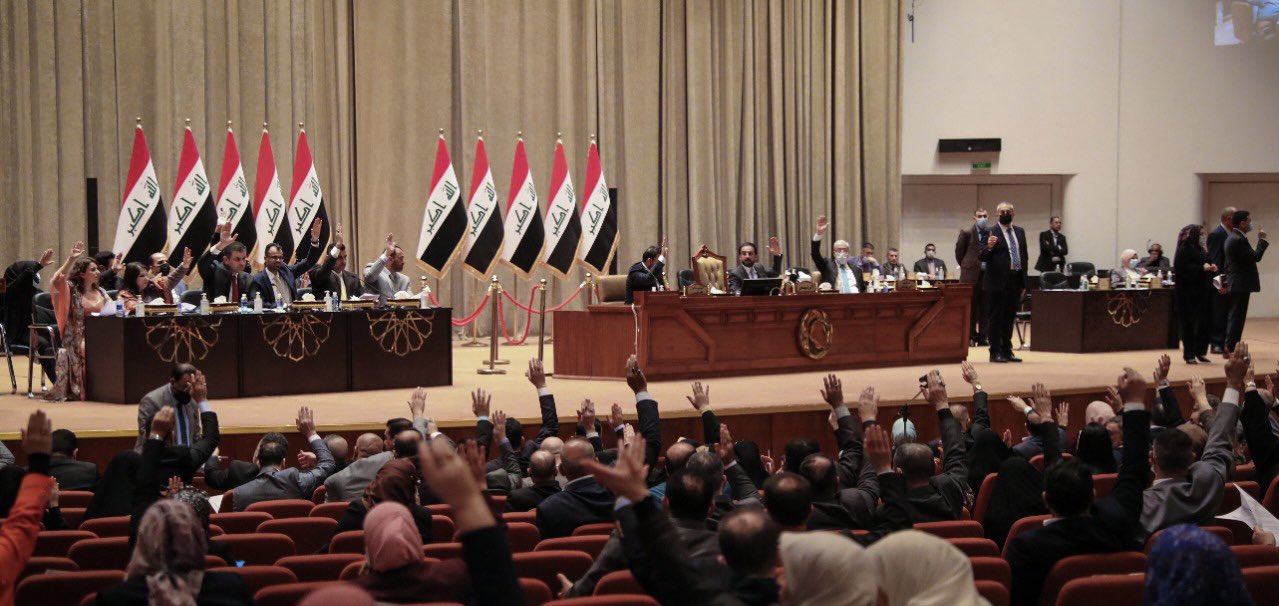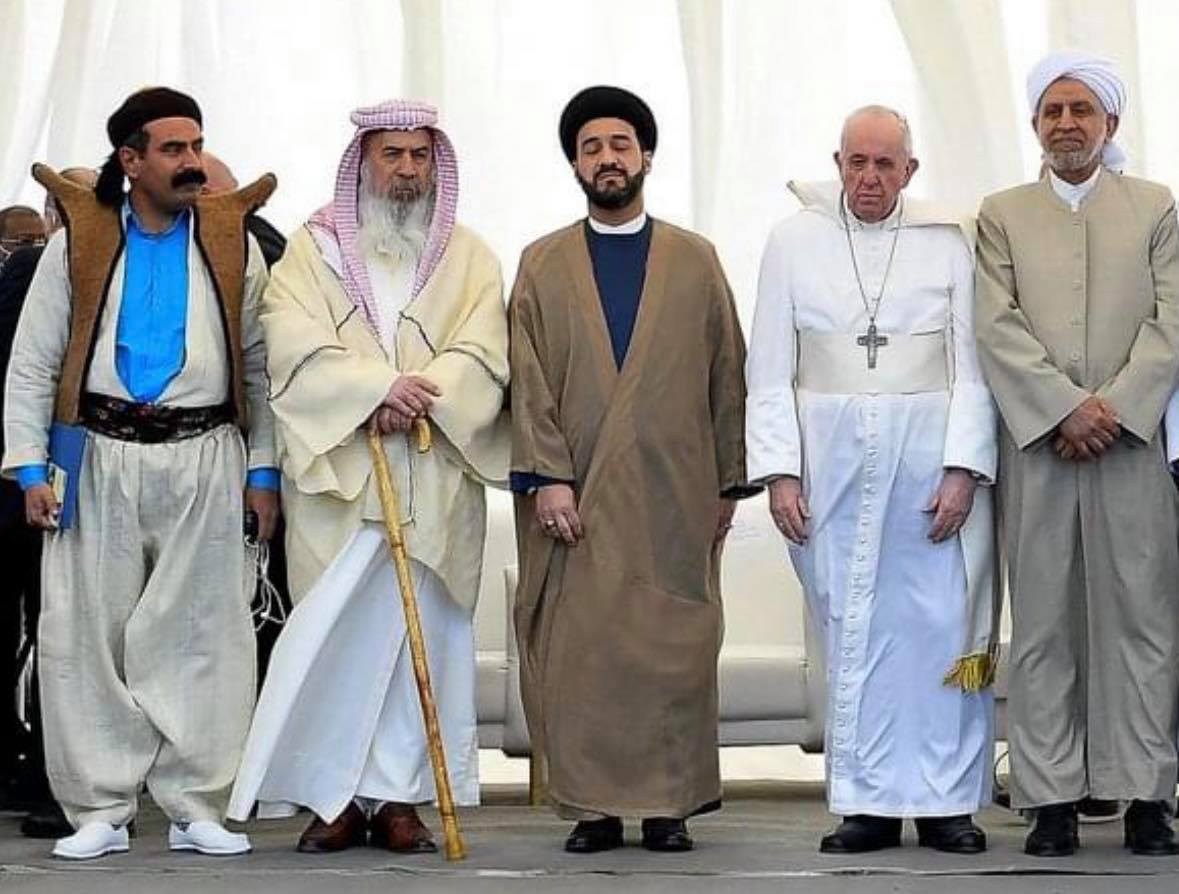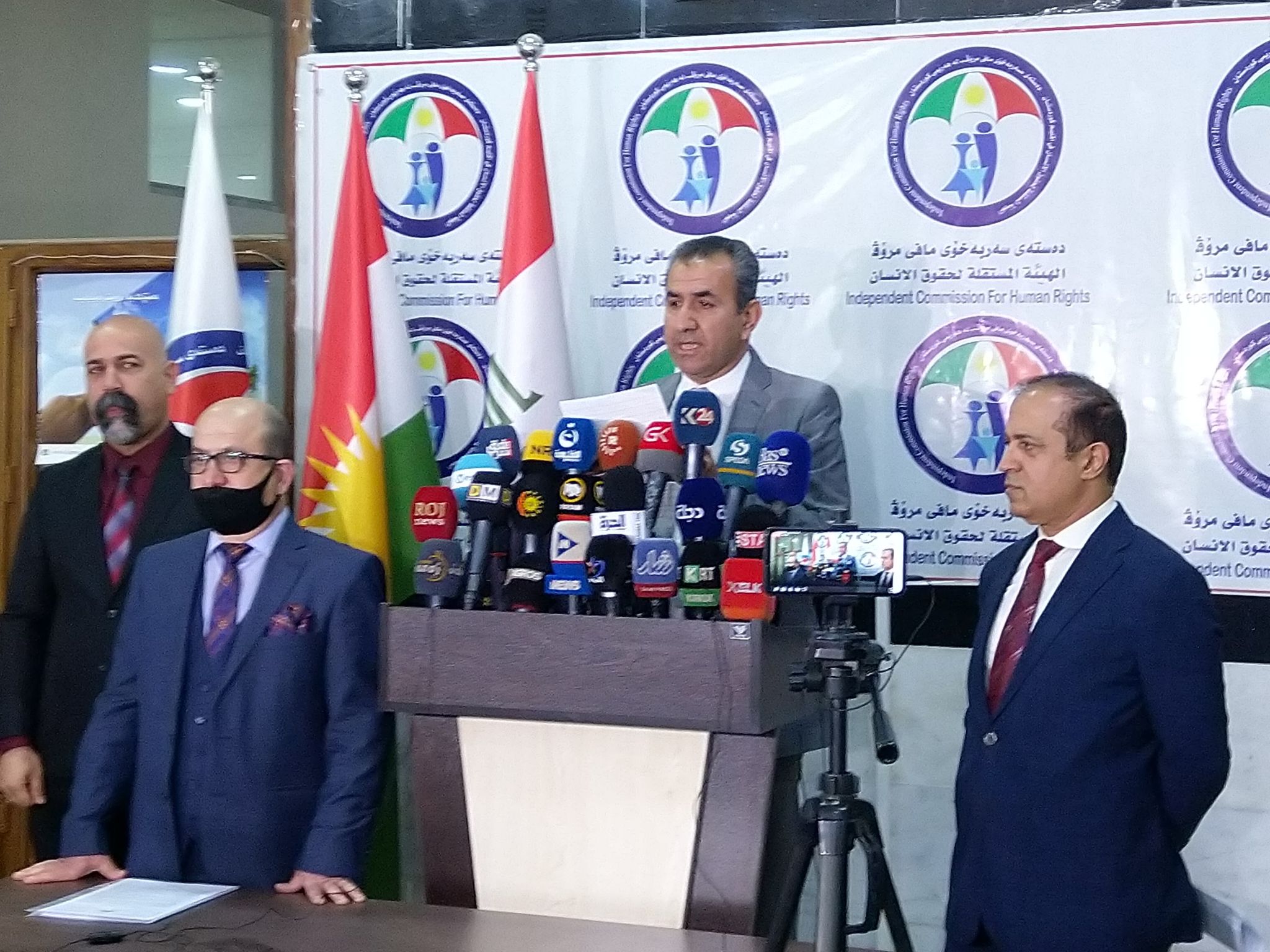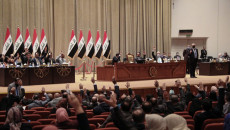Religious minorities in Iraqi Kurdistan region seek support of human rights commission to stop amendments of Iraq's federal court law by Shiite parties to legalize membership of Islamist jurists in the 11-judge member court.
Iraqi parliament session on Monday to approve last three articles of the law was adjourned. In the last session by Iraqi parliament on March 8, MPs endorsed all the articles of federal court law except articles 2, 3 and 12 due to objection of MPs representing the minorities.
The articles address the structure of the court, mechanism of decision making and the membership and role of Islamic Sharia jurists in the court, without any reference to any role of other religions.
"If the Iraqi parliament passes the law in its current format, it is a big risk for all components and endangers peaceful coexistence," Said Ferhad Kaka'i, member of Kurdistan Components Network, an umbrella defending rights of minorities in Iraq.
"If the amendment is endorsed, Iraq heads toward being Islamism which is contradictory to Iraqi constitution…. This is not a threat only to the eight religions in Iraq; it is a threat to the ethnicities of Kurds, Turkmen and Assyrians as well."
"This is not a threat only to the eight religions in Iraq; it is a threat to the ethnicities of Kurds, Turkmen and Assyrians as well."
Several members of Iraqi parliament and activists decry some articles of a law for Iraq's supreme federal court about its structure, mechanism of decision making and representation of Iraqi components.
Iraq's federal court is the supreme judicial power in the country, a body independent from the government and the Supreme Judicial Council, authorized to dissolve disputes between the legislative and executive authorities, between ministries, the legitimacy of legislations, constitutional issues and the disputes pending between federal and regional governments.
The new law is derived to replace deceased members of the court composed of 11 judges, the mechanism of nomination of new members. Pro-Shiite parties aim to add four Islamist jurists to the court to ensure all verdicts and rulings go along the principles of Islam.
Representatives of religious and ethnic minorities in Iraq are concerned over their seat in the federal court.
The article regarding the religious jurists led to serious concerns by MPs of minorities and civil society advocates over the role of religion of the majority in the future of the country.

Christian pilgrims head toward Ur ancient city home of Prophet Abraham, founding father of the monotheism religions in March 2014. Photo by Reuters.
The umbrella defending minorities asked for support of Independent Commission for Human Rights in Kurdistan, for support to stop the attempts to amend Iraq's federal court law.
Zeya Boutros, head of the commission, a Christian from Erbil, believes it is not necessary to add religious jurists. "The judges themselves are well educated about Islamic Sharia as jurists whom cannot replace the judges."
In Iraq, there are eight religions of Islam, Christianity, Ezidi, kaka'i, Baha'I, Zoroastianism, Mandaesm and Judaism but not all of it are recognized by Iraqi constitution.
In 2005, Iraq's federal court law was approved to have 11 members nominated by Arab Muslim Shiite & Sunnis, Kurds, Turkmens and Christians.

Iraqi parliament session on March 8th, 2021 to endorse Iraq's federal court law. Photo by media office of Iraq's parliament speaker.
The Christians emphasize the role of the courts are legal not religious.
"Enrolling religious expertise in the federal court is a massive interference in the name of religion and sectarianism against the principles of human rights and rights of minorities," said Nawzad Pauls, head of Kurdistan Components Network.
Christians as the second biggest religious after the Muslims, "will never accept Islamic jurisprudence join the supreme federal court…. We don’t need Islamic jurisprudence, we need law," Pauls added.
We don’t need Islamic jurisprudence, we need law," Pauls added.
The attempt comes only one week following the 3-day trip by Pope Francis to Iraq calling for fraternity and peaceful coexistence. On the first-ever papal visit to Iraq, Pope Francis has called on Iraqi leaders to end violence and factions and open the way for those who are faithfully willing to bring in peace through constructive dialogue.
On March 6th, Pope Francis met with representatives of the three Abrahamic religions at Ur of the Chaldeans in Iraq in an interreligious meeting, urging Christians, Muslims, & Jews to journey along a path of peace under the stars of the promise God made to Abraham. Representatives of Ezidis, Kaka'is and Mandeans attended the meeting.

ٌٌRepresentativnes of Ezidis, Kaka'is and the mandeans attended the interreligious meeting with Pope Francis in Ur, south of Iraq on March 6th, 2021. Photo by the Vatican media.
"This is an attempt by pro-Iran Shiite to blow Pope-Sistani efforts."
Ahead of Ur meeting, the Pontiff met Grand Ayatollah Sayyid Ali Al-Sistani, the key Shiite leader, in Najaf, marking a historic meeting between two key religious figures for Christians and Muslims all over the world. Analysts consider the visit a blow to Iran which believes Qum is the centre for Shiites in the world not Najaf in Iraq.
The umbrella for the minorities highlighted in their statement that the bases for the court are citizenship, qualification and independence, to refrain from ethnic, sectarian and religious quotas."
"Any gaps to be filled in by consultation among Iraq and Kurdistan judicial council and the federal judicial to ensure the federal court fulfill its constitutional tasks," the statement added.
"The Iraqi parliament undertakes a big responsibility by ensuring rights of all components when passing laws not based on the bases of majority and minority," Boutors deemed.






